FREE Standard Shipping On All Orders $100 or More!*
Who Invented Pools? A History of Swimming Pools
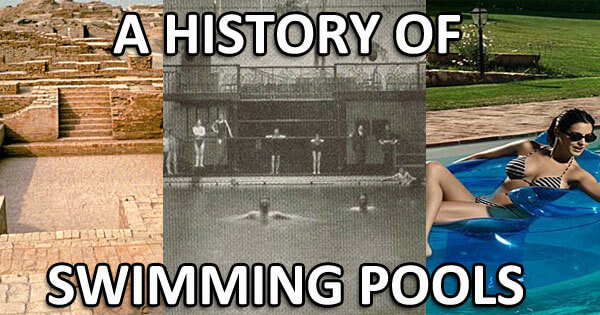
There's over 10 million pools in the United States today, but swimming pools were not always so prevalent. The last 50 years has seen an explosion of growth in backyard pools, once a luxury only available to those with names like Vanderbilt and Getty.
Pakistan 2500 B.C.
The Great Bath is credited as being the first man-made pool, built of stone and brick and coated with Bitumite tar. Discovered in 1926, it was thought to be used for spiritual bathing by the ancient Indus Valley people, who lived in the south of modern-day Pakistan. No lap swimming or water polo.

Greece 700 B.C.
Ancient Greece is well known for the love of public baths, and as the Greek Philopsopher Plato stated, "A man is not learned until he can read, write and swim". And Hippocrates recommended a daily scented bath and oil massage. Bathing is popular, but swimming, or playing pool games? Not so much, not even Marco Polo.
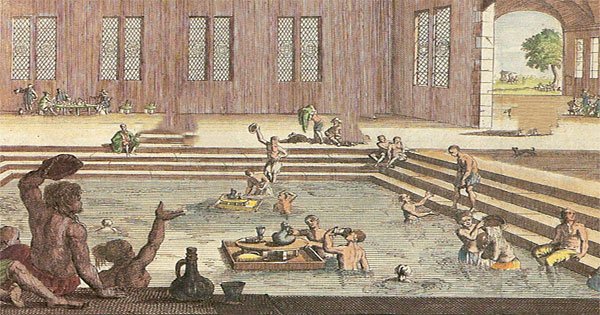
Rome 100 A.D.
And public baths were also a way of life in the Roman empire, and they were built in typically grand Roman style. The Caracalla baths in Rome, were fed a constant supply of fresh water from hills over 50 miles away, via a system of aquaducts. And, the first heated pool was installed by Gaius Maecenas during the first century. However, still not too much swimming, although 'state swimmers' trained in Roman pools for competition.

The Dark Ages 400 - 1800 A.D.
These were dark times for swimming pool builders, and I'm sure many were forced out of business after the fall of the Roman empire. Exercise eventually grew out of fashion, and bathing also unfortunately became a rare event. :-?
England 1830
The modern era for pools was ushered in by Great Britain, who made great strides in water treatment and management, and due to alarming drowning rates, had 6 public pools built in London by 1837. Popularity in swimming as a sport grew as a result, and in 1869, the Amateur Swimming Association was formed to promote the skill, the sport and the exercise of swimming in the UK.
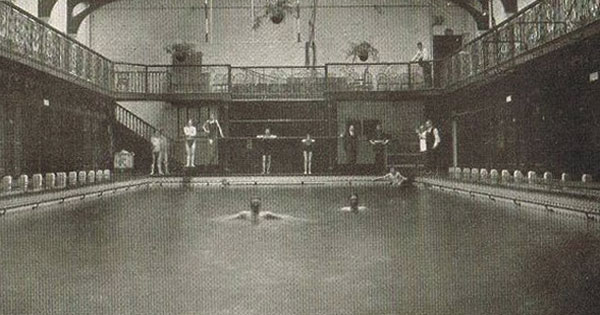
Olympics 1896
The modern Olympic games began in 1896 with competitive swimming as an Olympic event, which has undoubtedly has had a lasting effect on the popularity of the sport. At the 1896 games in Athens, Greece, 20,000 spectators viewed 4 swimming events, held in the open water ocean, because funds could not be raised to build a suitable pool.
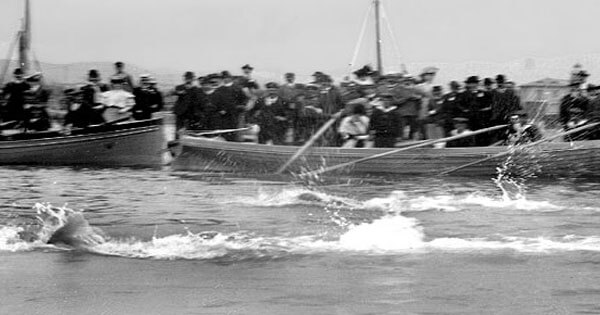
Texas 1915
Deep Eddy pool is the oldest swimming pool in Texas which began as a popular swimming hole in the Colorado River, became a resort in the 1920s, and is today a popular swimming pool operated by the City of Austin. Deep Eddy is not the very first swimming pool in the US, that claim belongs to others, but I'm from Texas!
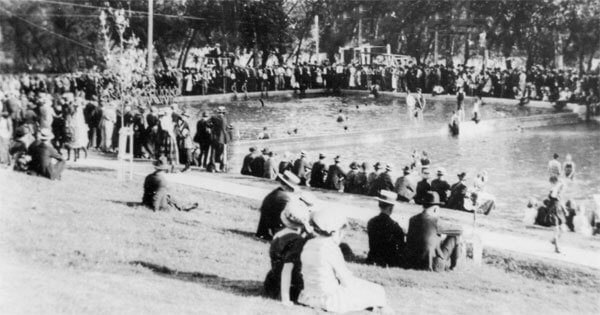
California 1920
William Randolph Hearst built the spectacular Neptune pool, and filled it with 350,000 gallons of water from the Santa Lucia mountains. Built to grand proportions, it's one of the first pools to use Gunite for construction. Surrounded by Greek and Roman statues, pavilions and collonades, it features the facade of an ancient Roman temple.
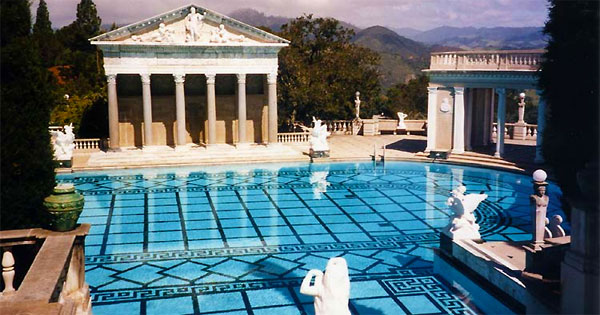
Hollywood 1940
As Hearst castle became the playground to Hollywood elite, the pool was featured in many early Hollywood movies. Hollywood blockbusters soon would feature pools as the toys of the rich and famous, and later in the decade, movies by Esther Williams and Johnny Weissmuller glamorized the 'cool' pool lifestyle (and synchronized swimming).
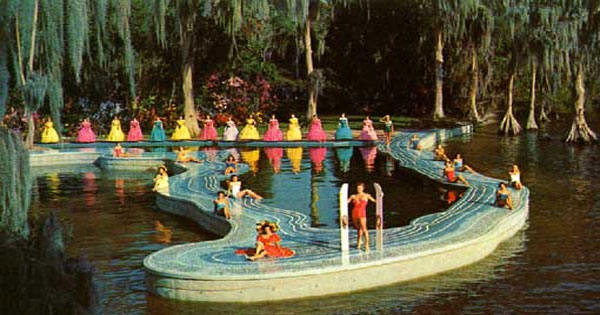
Hotels 1960
Give some credit to the American hotels and motels that began installing swimming pools to lure guests during the 1950's. By the time I was growing up in the 70's, nearly all hotels had to have a pool, if they wanted to compete for family and business travelers. That hasn't changed much, pools are still a popular resort option for hotel guests.

Homes Today
A tip of the hat to all 8 million pool owners in the US - you are the real reason that the swimming pool has evolved from a community bath tub, to a source of backyard entertainment and exercise. Since 1949, companies like Anthony Pools and Doughboy pools have put a pool within reach of millions. Construction methods and technology has made swimming pools affordable and nearly maintenance free, with fun pool floats and shark robots!
OK, maybe not shark robots, but other cool pool conveniences that make pool ownership easier and more fun. Thanks for reading this history of swimming pools, you are part of it - if you own a pool, count yourself among the leisure elite!